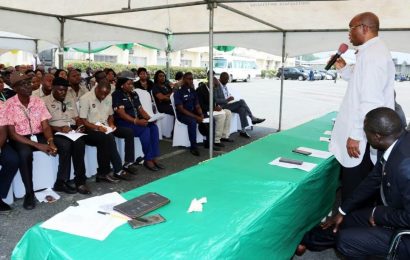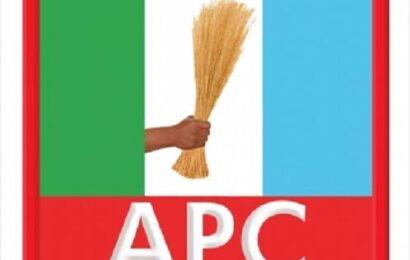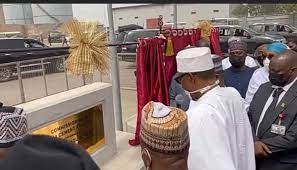
The National Assembly on Saturday passed the 2024 Appropriation Bill, increasing the sum to ₦28.7 trillion from the initial ₦27.5 trillion presented by President Bola Tinubu late November.
The lawmakers in the Senate and the House of Representatives passed the bill after raising the budget size by N1.2 trillion.
In the bill passed, the sum of 1,742,786,788,150 was earmarked for statutory transfers, 8,270,960,606,831 for debt servicing, 8,768, 513, 380, 852 for recurrent expenditure while 9,995,143,143,298,028 was for capital expenditure.
The Senate said that in order to accommodate further requests from the Executive for additional funding, the Committee on Appropriation made some adjustments to the bill.
Some of the adjustments made include foreign exchange differential, increase of Government-Owned Enterprises’ (GOEs’) revenue, GOE’s personnel reduction, Service Wide vote (wage adjustment) and reduction from Service Wide.
President Bola Tinubu had late November presented the 2024 budget estimates of N27.5trn to the National Assembly.
Christened the ‘Budget of Renewed Hope’, the President said it would ensure micro-economic stability, poverty reduction, greater access to social security, amongst others.
The two chambers at the Committee of Supply considered the Appropriation Bill presented by the Chairman, Appropriation Committee of the Senate, Adeola Solomon, and his colleague in the House, Abubakar Bichi.
Under the N8.271tn approved for debt service in the year 2024, the sum of N5.3tn is to be incurred through domestic debts, including Ways and Means; N2.748tn through foreign debts, while the Sinking Fund for the retirement of maturing promissory notes stands at N223.662bn.
For the statutory transfers, the National Judicial Council got the highest allocation of N341.626bn; followed by Niger Delta Development Commission with N338.925bn; Universal Basic Education Commission, N263.044bn; North East Development Commission, N131.836bn; Basic Healthcare Provision Fund, N131.522bn; National Agency for Science and Engineering Infrastructure, N131.522bn; Public Complaint Commission, N14.46bn; and N5bn for the National Human Rights Commission.
Meanwhile, for the National Assembly, the sum of N78.624bn was approved for House of Representatives; N49.145bn for the Senate; N36.727bn for the National Assembly Office; N30.807bn for general services; N20.388bn for legislative aides; N15.189bn for Service Wide Vote; N15bn for the National Assembly Hospital project; N12.326 for the National Assembly Service Commission; N12.123bn for the National Assembly Library Complex (take-off grant); N10bn for the ongoing construction of NASC headquarters; and N9.008bn for the National Institute for Legislative and Democratic Studies, among others.
The President of the Senate, Godswill Akpabio, had assured Nigerians that the bill would be transmitted to the President for expedited passage into law for it to come into effect on January 1, 2024.






